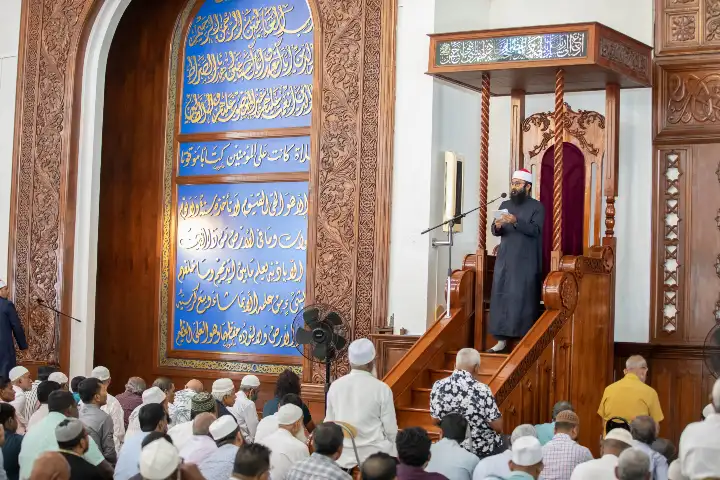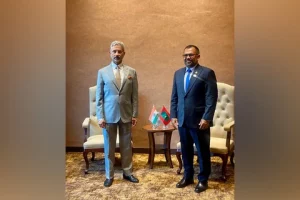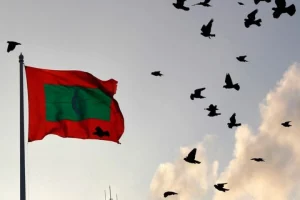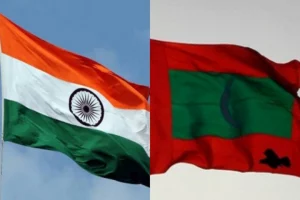The Islamic Ministry of the Maldivian government has filed a case against Indian construction company AFCONS Infrastructure with the Maldives Police for performing the inauguration ceremony of road construction according to Hindu rituals. The ceremony of offering prayers and breaking a coconut on the machinery for blessings took place in Hithadhoo, Addu City, earlier this week.
According to The Times of Addu, the Islamic Ministry said that the Indian workers “expressed a slogan of another religion in violation of Islam and the laws and regulations of Maldives and that Islamic Minister Dr Ahmed Zahir Ali had condemned their actions”.
“Anything using a religious slogan is strictly prohibited by the law and regulations to protect the religious unity of the people of Maldives,” the Ministry said.
The Islamic ministry lodged the complaint after a viral video on social media showed workers praying to a road construction machinery, followed by the holy ritual of breaking a coconut. The ministry initiated action after Miuvan Mohamed, Spokesperson, President’s Office, told a media briefing that the government will not allow anything against Islam to be carried out in the island nation.
India has been supporting the infrastructure development of Maldives in a big way.
Contract for Greater Malé Connectivity Project – the largest infra. project in the Maldives – was signed today between AFCONS & Govt of Maldives.
The 6.7 km bridge & causeway link is a key priority for Govt of Pres @ibusolih , funded under a $100 mn grant & $400 mn LoC from
pic.twitter.com/qR7Vrp9aiG
— India in Maldives (@HCIMaldives) August 26, 2021
Maldives, an archipelago in the Indian Ocean, practices Sunni Islam and bans the worship of any other God or religious symbols.
Maldives, which has been greatly influenced by Gulf countries in following Islamic practices, has not taken to reforms the way the Gulf nations have. Oman, UAE and Bahrain have been diluting the role of religion in a bid to align their countries into the global economy.
The UAE shifted its weekend from the Islamic Friday-Saturday to the more accepted Saturday-Sunday to be in tune with global markets and for better trade and economic relations. Last month, Dubai inaugurated a grand Hindu temple in the Jebel Ali worship village which also has a gurudwara and many churches.
The neighbouring Kingdom of Bahrain, with its Sunni government in place, is currently hosting an inter-faith dialogue with the world’s leading clerics assembled in the island nation.
The Saudis too have been gradually allowing social change to take root—more rights to women, allowing music concerts and giving a boost to the tourism and entertainment industry, all of which were earlier considered un-Islamic.
The winds of change sweeping the Gulf do not seem to have touched the Maldivian archipelago, which continues its lone march towards radicalisation and strict enforcement of Islamic rules.
In September, Indian nationals were sent to jail for making a small clay murti, worshipping it and immersing it into the sea. The local government of Bilehdhoo said that ‘idol worship’ will never be accepted within the community. It also appealed to the police to take strong action against “this disgusting act” so that those involved could “be punished harshly”.
Radicals in the Maldives had earlier this year disrupted the International Yoga Day (ITD) celebrations by invading the National Stadium in Male during the event and threatening participants and guests.
A few years back, the Maldivian police had entered the Canadian-owned hotel chain, Fairmont’s luxury property and destroyed underwater sculptures with hammers and axes for being “anti-Islamic”.
Also Read: India steps up high impact projects in Maldives by releasing $34 million housing loan




















